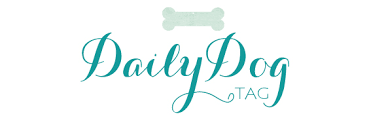Taking care of my Newborn Puppies - Ottawa Pet Photographer
/Young puppies need special care. At the tender age of one week old, a puppy is still a newborn and extremely dependent on her mother. Over the coming weeks, she will begin to grow out of her infancy into a young puppy. Many exciting changes happen for puppies between the age of one to eight weeks.
Physical Development
At one week old, puppies' eyes are still closed. Their eyes will begin to open in the second week of life, usually between 10 to 14 days of age. However, they won't be able to see clearly at first. The eyes will gradually open wider, revealing grayish-blue eyes with a hazy appearance. Puppies' eyes will continue to develop over the next several weeks, reaching full vision around eight weeks of age.
Puppies' ears begin to open soon after the eyes do, generally around 14 to 18 days old. Their hearing will continue to develop until the puppies are around eight weeks old.
Newborn puppies cannot support their weight for the first two weeks of life, so they crawl around on their bellies, paddling and pushing with their legs and building strength. Most puppies will be able to stand on their legs between days 15 to 21. They usually begin to walk with a wobbly gait around 21 to 28 days of age.
Puppies need to be stimulated to urinate and defecate for the first several weeks of life. Mom does this by licking the anal and genital areas. Puppies gradually develop the ability to urinate and defecate on their own around three to four weeks of age.
Puppies are born without teeth. Their baby teeth, or "milk teeth" will begin to come in between two to four weeks of age and remain until about 8 weeks of age.
Behaviour Changes
For newborn puppies, the first two weeks of life are all about sleeping and eating. After 14 days of age, physical changes open up a whole new world. They begin to see, hear and walk. By the age of 21 days, they begin to explore the world and learn about being dogs. This is also when the socialization process begins. She is learning how to interact with other dogs by interacting with her mother and littermates. Human socialization is important at this time as well.
Around seven to eight weeks old, the first "fear period" will begin. This is a time when most puppies seem to be afraid of new things. Anything you can introduce her to before this time may help make the fear period go more smoothly.
Food and Nutrition
For the first three weeks of life, puppies get the nutrition they need from their mother's milk. If the puppy was orphaned or needs supplemental nutrition, puppy formula can provide the necessary nutrients.
After baby teeth have erupted, around three weeks old, the puppies may be ready to begin weaning. Mom may naturally begin this process as she feels those puppy teeth nipping at the teats. A good way to transition the pups to dog food is to bring out some canned puppy food or softened puppy kibble (use warm formula or water to soften the kibble). Be sure to choose a dog food intended for growth. You can encourage them to eat it by offering a taste from your finger. As puppies get used to the puppy food, they will gradually nurse less and less. Most pups are fully weaned by six to seven weeks of age.
Training and Socialization
Puppies between one to three weeks are still too young to respond to training or socialization. At three to four weeks, they are able to see, hear, walk, and urinate/defecate on their own. Though their brains are still developing, they are capable of learning some things.
Of course, it is still important for these young pups to remain with their mother and littermates until eight to twelve weeks of age. As early as three to four weeks of age, you can start to introduce the crate and start some basic potty training. Even if the pups will be getting homes between eight to twelve weeks of age, you can start laying the groundwork for training.
The time between four to seven weeks of age is an early socialization window. Although the puppy must remain with its mother, it is now ready to be exposed to new sights and sounds. It should start meeting people of all ages and appearances. This includes children who know how to act around dogs and will handle the puppy gently.
When is the best time to have my newborn puppies photographed?
In my opinion, the perfect time is between 3-4 weeks when their eyes are starting to open but they’re still nice and sleepy to work with safely.
*DO NOT have your puppies photographed unless you know they will be properly handled and everything will be sanitized appropriately. As you know puppies and their mothers can get sick very easily, so everything needs to be planned with caution and care with your pet photographer prior to your session.
Interested in seeing what a Newborn Puppy session looks like?
Check out this behind the scenes video of one of my Newborn Puppy Sessions.












